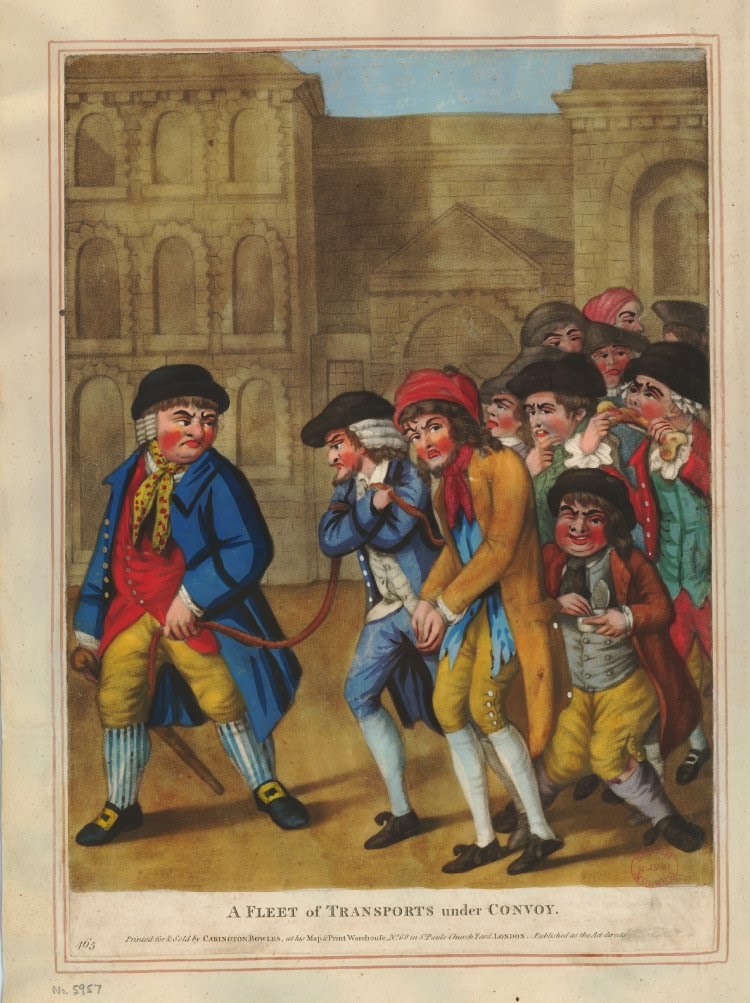
In the seventeenth century, those unfortunate enough to be transported from Britain to the American colonies were sometimes sold to their colonial masters in exchange for cattle or corn. They were not slaves but the conditions in which they laboured were slave-like. Some fought back.
Will Downing and Phillip Welch were before the Salem Quarterly Court of June 26, 1661. They were there for ‘absolutely refusing to serve’ their master, Samuel Symonds, any longer. Seven years earlier, Symonds agreed to pay the master of the ship Goodfellow ‘26li.[pounds] in merchantable corn or live cattle’ due before the end of the following October for the two young men kidnapped from their beds in their own country. They were neither convicts or indentured servants and were almost certainly sold illegally into servitude. Nevertheless, Will and Phillip had worked their master’s fields ever since. And he insisted that he had paid good value for them to do so for nine years, not seven.
One Sunday evening in March 1661, Will and Phillip joined the Symonds family in the parlour for prayer, as usual. Before the family and their servants began to worship, Phillip declared to his master ‘We will worke with you, or for you, noe longer.’ Symonds sarcastically inquired if they were not working what would they do – ‘play?’
Phillip and Will stood their ground. They had served Symonds and his family for the seven years they believed to be their penance for simply being in the wrong place at the time Cromwell’s soldiers were scouring their area for victims. Symonds told them that they were obliged to work for him unless they ran away, a crime with severe punishment. They did not wish to flee; instead they pleaded ‘If you will free us, we will plant your corne, & mende your fences, & if you will pay us as other men, but we will not worke with you upon the same termes, or conditions as before.’
This must have been a memorable moment in the life of the family and its servants. All had been living and working cheek-by-jowl and praying regularly together for seven years. There was some talk about business difficulties as Symonds sought to make his servants see what he considered to be sense. His wife backed him up, saying this was not a good time to bring up the subject of money. But the young men remained adamant. When their master asked them to begin prayers together, they refused. Next morning Symonds summoned the local constable to his home, demanding that the rebellious servants be ‘secured.’ The constable wondered whether it was necessary for the men to be taken away, but Symonds insisted a warrant be served on them and that they should be paraded before the court. Which they duly were.
Now William and Phillip had a chance to state their case: ‘We were brought out of or owne Country, contrary to our owne wills & minds, & sold here unto Mr. Symonds, by ye master of the Ship, Mr. Dill, but what Agreement was made betweene Mr. Symonds & ye Said master, was neuer Acted by our Consent or knowledge, yet notwithstanding we haue indeauored to do him ye best seruice wee Could these seuen Compleat yeeres …’
William and Phillip considered they had already served their time, and more, because the usual practice of transport ship masters was to sell their stolen human cargoes in Barbados for only four years servitude. But now for seven years the two men had labored on Samuel Symonds’ ten acres of corn ‘And for our seruice, we haue noe Callings nor wages, but meat & Cloths.’
For his part, Symonds testified that he had made a bargain with the shipmaster and he had the ‘covenant’, or contract, to prove it. There was a supporting deposition from the shipmaster who said he had sold Symonds ‘two of the Irish youths I brought over by order of the State of England.’
Some other servants gave evidence. One man who had been kidnapped and transported with Will and Phillip described how they had all been rounded up against their will ‘weeping and Crying, because they were stollen from theyr frends.’ Some of Symonds’s own servants testified to the resentment of Phillip and Will against their situation and their determination to be free. Phillip reportedly said at one point that if Symonds would give him the same share of his estate as he would give his own children, then he would continue to serve.
The intensely personal nature of the relationships of master, family and servants in the Symonds household is clear in these testimonies. But the court, rightly or not, found the arrangement was legal and decreed that Will and Phillip should continue to serve until May 1663. An appeal was notified immediately but the two men agreed to work for Symonds until a date for the hearing could be set. He was bound to give them leave to attend.[i]
Whether this appeal was ever heard is not known. Possibly the full nine years were served before it could be and Will and Phillip were finally unbound. If so, they could then sell their labour in an open market and start the families they wished for in the New World.
From Condemned: The Transported Men, Women and Children Who Built Britain’s Empire
Notes
[i] Salem Quarterly Court. Salem, Massachusetts. June 25, 1661. Records and Files of the Quarterly Courts of Essex County, Massachusetts, vol. II, 1656-1662, pp. 298ff at https://archive.org/stream/recordsandfiles00dowgoog#page/n307/mode/2up, accessed December 20, 2017. Welch’s proper forename was Phillip, as noted in the court records. Some references to these records claim that the youths were referred to as ‘slaves’ – they were not, see Jennie Jeppesen, ‘Within the protection of law’: debating the Australian convict-as-slave narrative’, History Australia, vol 16, issue 3, 2019, at https://www.tandfonline.com/eprint/TYGCVFDNDUFDAY5NSGNN/full?target=10.1080%2F14490854.2019.1636674&, accessed November 2019.
